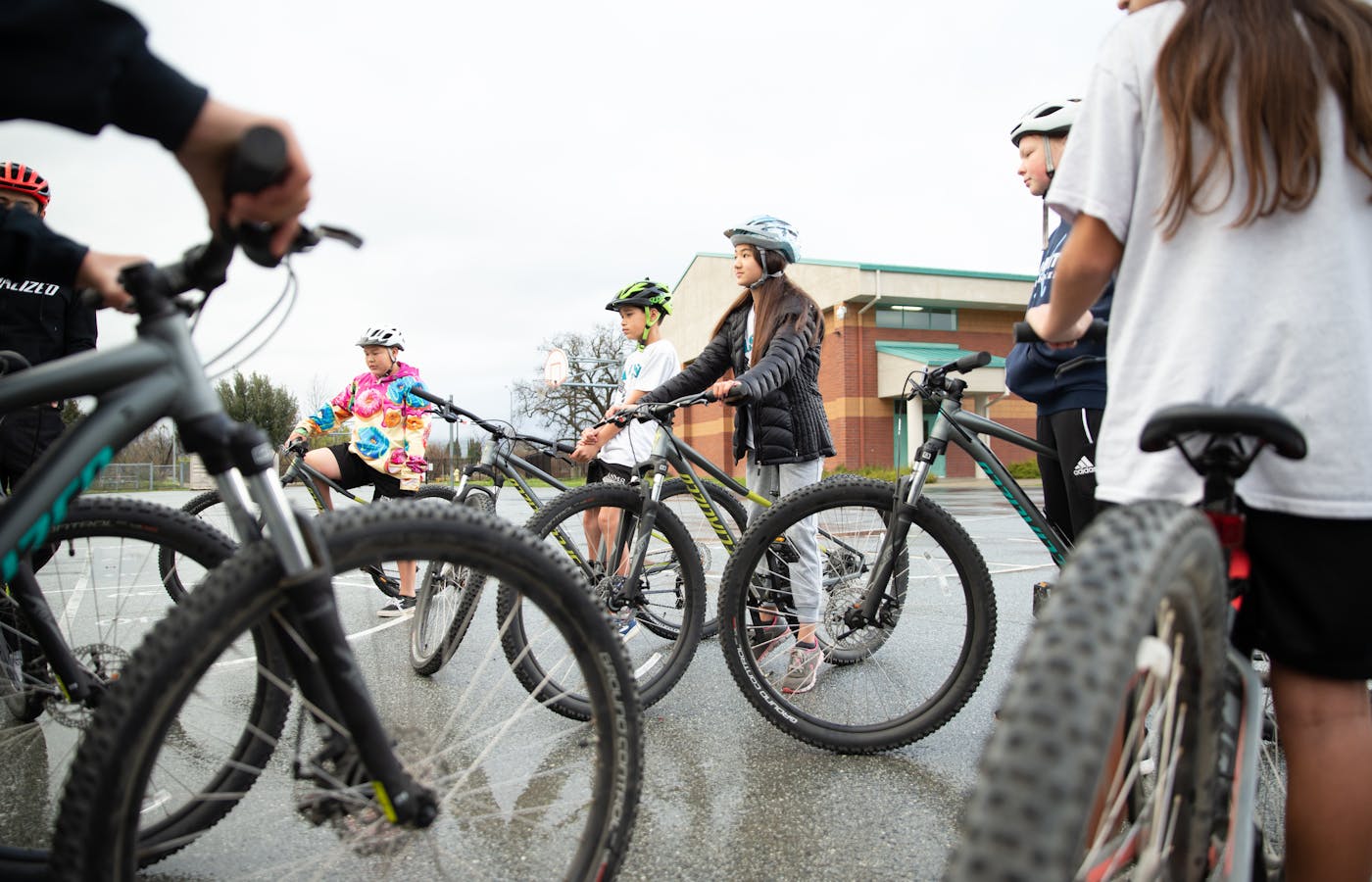Research Highlights the Positive Impact of In-School Cycling
By: Nick Aguilera, youth and community partnerships manager

A collaboration between Outride and Loma Linda University showcases the critical role middle school cycling programs play in enhancing adolescent health and well-being.
When you pass a group of kids on bicycles, it’s hard not to smile — there’s something innately joyful about the sight. There’s also an underlying assumption that everything about the act, from the socialization to the time spent outdoors engaged in physical activity, is good for them. New research affirms that gut feeling.
Published on October 12, 2023, in Frontier in Sports and Active Living, a new study from researchers at Loma Linda University (LLU) reveals the positive impact of cycling education on the psychosocial well-being of students. The research is the result of a collaboration between LLU and the youth cycling nonprofit Outride, examining the impact of Outride’s in-school cycling programs on the mental health of middle schoolers.
"Our findings were incredibly encouraging,” says Dr. Sean Wilson, LLU professor and senior author of the study. “A large proportion of students had a positive learning experience and continued interest in cycling,”
“As a learning organization, we really want to understand how bicycling can improve the lives of youth in their communities,” says Dr. Esther Walker, senior research manager at Outride.
Anonymous surveys were collected before and after the program in 20 schools in North America, with psychosocial well-being quantified using the WHO-5 Well-Being Index and the Pediatric Symptom Checklist (PSC-17-Y). The former is a short, five-item, self-report questionnaire that assesses positive well-being and primarily assesses for depression, while the latter is a widely used measure of psychosocial functioning, with lower scores representing greater well-being. According to the study, participation in R4F was associated with improved psychosocial well-being among middle school youth in the United States.
“It was really encouraging to see such a positive student response to a cycling-specific physical education program,” says Fletcher Dementyev, a research fellow at LLU and first author of the paper. “This result motivates us, and hopefully others, to continue investigating and developing cycling as a pathway to improved health and well-being in adolescents.”
“By providing access to bikes, a safe environment to learn to ride, and the confidence to ride independently, we can really help to create healthy pathways,” says Walker. “As youth are facing worrying levels of physical inactivity and mental health challenges, finding those activities that get them excited to participate is really important.”
PeopleForBikes’ 2022 Bicycling Participation Report reflects this trend: While 49% of youth ages 3-17 rode a bicycle at least once in 2022, ridership among younger Americans has continued to drop since 2016.
“Our program data shows that access to bikes at home, as well as safe places to ride, is not equitable across the student population,” said Walker, noting that programs like R4F, which take place during the school day and provide all necessary materials, gives everyone the opportunity to learn a skill they can use throughout their life. "While bicycling can certainly contribute positively to one's day-to-day life, to see large-scale improvements, we need changes in policy and reductions in systematic disparities in access to nutrition, health services, safe environments, and beyond.”
As school systems, educators, policymakers, and healthcare professionals work together to address the mental health challenges facing today's youth, this study provides valuable insights into the potential of cycling programs to enhance the mental well-being of young people across the U.S. University-backed research is showing the benefits that come along with getting more kids on bikes. Communities should listen.
Interested in learning more? Follow Outride on Instagram and Facebook to stay up-to-date with their work to improve the well-being of youth through research-backed cycling programs.
Related Topics:
